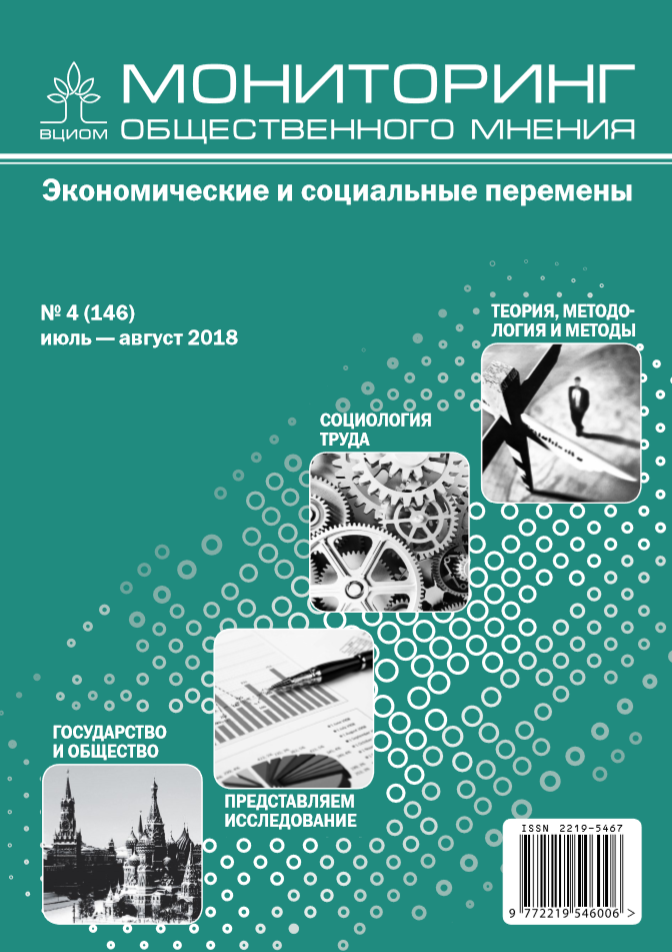Динамика социального капитала в России
DOI:
https://doi.org/10.14515/monitoring.2018.4.13Ключевые слова:
семейный социальный капитал, неформальный социальный капитал, формальный социальный капитал, доверие, гражданская активность, просоциальные установкиАннотация
Статья посвящена анализу социального капитала в Российской Федерации. В отличие от распространенной классификации Р. Патнема, в статье рассматриваются не два, а три типа капитала (семейный, неформальный, формальный), каждый из которых содержит социальное и структурное измерение. В работе используются данные Всемирного исследования ценностей в период с 1990 г. по 2017 г. Согласно результатам исследования, семейный социальный капитал оставался довольно стабильным на протяжении всего рассматриваемого периода. Важность друзей и доверие знакомым — показатели неформального капитала — продемонстрировали разнонаправленные тренды: восходящий для первого и нисходящий для второго. Структурное измерение формального социального капитала (членство в НКО и подписание петиций) характеризовалось положительной динамикой, а индикаторы социального измерения также показали противоположные тенденции. Генерализованное доверие в России выросло, а уровень осуждения взяточничества, неуплаты налогов, безбилетного проезда и неправомерного получения государственных пособий, наоборот, довольно значительно снизился.






